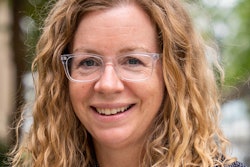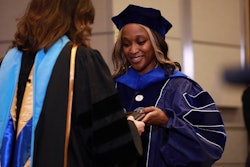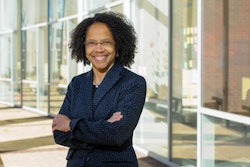WASHINGTON — In order to make the United States more competitive in technological innovation, business leaders must step up and play a more forceful role in shaping how so-called STEM education is designed and delivered.
That was the heart of the message delivered by a series of speakers and in a new report released Wednesday during a forum held at the U.S. Chamber of Commerce.
Several of the speakers and the report itself espoused taking a tough approach toward a K-12 educational system that they say is too heavily focused on the interests of its personnel.
Among those who called for school systems to rely more heavily on strategic use of technology and less on actual teachers is former New York City Schools Chancellor Joel Klein.
“We’ve made a bet on human capital expansion,” Klein said, lamenting that the number of teachers in American schools have increased dramatically over the past few decades but that academic performance has remained stagnant.
“This to me means if we continue this trajectory, if we think lowering class size is going to redeem us, we are going to continue to get these same exact results,” he said.
Instead of hiring more teachers, Klein suggested that school systems invest in more computers and other gadgetry that can be used to tap into the interests and learning styles of today’s youth.
Klein, who served as chancellor for eight years, recently started a new job as CEO of the newly launched Education Division at Rupert Murdoch’s News Corp. He stated in a recent interview that people should “stay tuned” to his efforts to help the company to make forays into the world of education.
Other speakers and the report itself — titled “The Case for Being Bold: A New Agenda for Business in Improving STEM Education” — made no bones about their disdain for business leaders who make nice with public education instead of coming to the table with resources and making stern demands.
“While there has been a steady supply of sensible proposals for improving STEM education, most leave largely undisturbed the organizing assumptions of schools designed to process the masses and educate the few,” says the report, written by Frederick M. Hess, Andrew Kelly and Olivia Meeks of the American Enterprise Institute.
“The familiar ‘nice guy’ repertoire that the business community has long embraced — partnering with the existing institutions to promote ‘best practices,’ provide resources and involve corporate supporters — offers some aid but is unlikely to deliver breakthrough improvement,” the report states. “Simply put, remedies engineered to fit comfortably within today’s system will be hard-pressed to fundamentally transform STEM education.”
Among other things, the report calls for:
- Personalizing instruction for individual needs. Klein spoke of a student he observed in a classroom text messaging a tutor in Mumbai. From Klein’s account, the student said the personal attention he was getting from the India-based tutor was more effective than what he had been provided previously.
- Rethinking the teaching profession and carving new paths to teaching. Report co-author Kelly said schools should be willing to relax teacher license requirements in order to attract more STEM experts from the private sector.
“Why don’t we meet STEM experts where they are by providing more opportunities to get involved?” he said, adding that private firms should consider setting up professional teacher development arms in order to cultivate more educators for America’s schools.
- Getting more value out of great teachers. “Rather than ask every teacher to teach the same material to the same number of children, excellent teachers should be rewarded for taking on more students successfully,” the report states. The report lauds Bill Gates and U.S. Department of Education Secretary Arne Duncan for promoting policy changes and practices that will boost specialization and productivity for STEM teachers.”
Wednesday’s event also provided a platform for movers and shakers in the business and nonprofit worlds to discuss their work.
They included Linda Rosen, CEO of Change the Equation, a nonprofit that aims to get corporations to make more strategic philanthropic investments in STEM education; A. Neil Jones, vice president of Kryosphere, which is described as a “bio repository” firm; and Michele Cahill, vice president of National Programs for the Carnegie Corporation of New York.





















